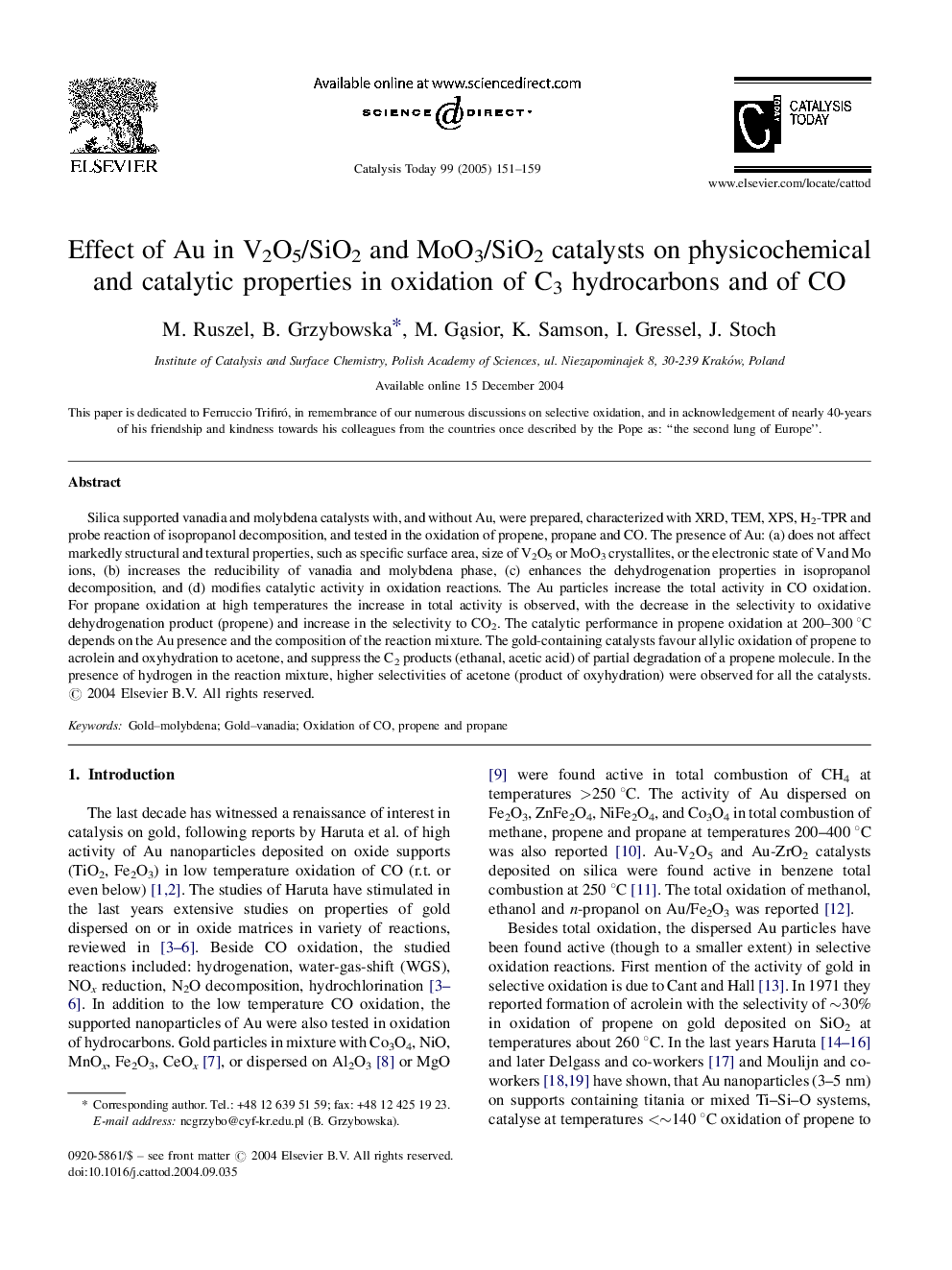| Article ID | Journal | Published Year | Pages | File Type |
|---|---|---|---|---|
| 9610589 | Catalysis Today | 2005 | 9 Pages |
Abstract
Silica supported vanadia and molybdena catalysts with, and without Au, were prepared, characterized with XRD, TEM, XPS, H2-TPR and probe reaction of isopropanol decomposition, and tested in the oxidation of propene, propane and CO. The presence of Au: (a) does not affect markedly structural and textural properties, such as specific surface area, size of V2O5 or MoO3 crystallites, or the electronic state of V and Mo ions, (b) increases the reducibility of vanadia and molybdena phase, (c) enhances the dehydrogenation properties in isopropanol decomposition, and (d) modifies catalytic activity in oxidation reactions. The Au particles increase the total activity in CO oxidation. For propane oxidation at high temperatures the increase in total activity is observed, with the decrease in the selectivity to oxidative dehydrogenation product (propene) and increase in the selectivity to CO2. The catalytic performance in propene oxidation at 200-300 °C depends on the Au presence and the composition of the reaction mixture. The gold-containing catalysts favour allylic oxidation of propene to acrolein and oxyhydration to acetone, and suppress the C2 products (ethanal, acetic acid) of partial degradation of a propene molecule. In the presence of hydrogen in the reaction mixture, higher selectivities of acetone (product of oxyhydration) were observed for all the catalysts.
Related Topics
Physical Sciences and Engineering
Chemical Engineering
Catalysis
Authors
M. Ruszel, B. Grzybowska, M. GÄ
sior, K. Samson, I. Gressel, J. Stoch,
